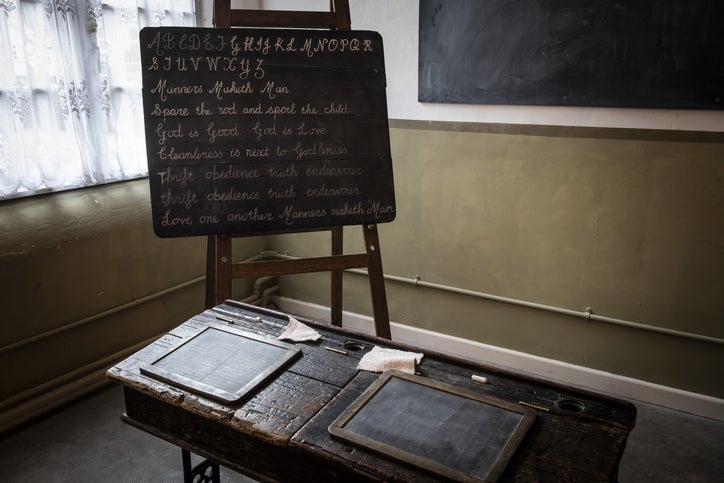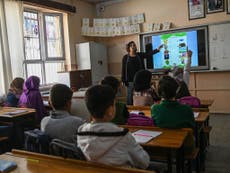Victorian schooling has to go – technology should be the cornerstone of our education system
Coronavirus offers the chance to invest in, modernise and reinvent our classrooms, says Derek Peaple


It’s no secret that our education system was designed in, and for, a past century. The industrial revolution provided us with the epoch-defining concept of the factory, and gave us the need for engineers and the means to pay for their training. The hallmarks of the factory are still in every classroom, from the ordered distribution of desks, to uniforms, to our continued obsession with teaching in subject silos at the expense of approaches which promote creative or emotional intelligence.
But the world depicted by Charles Dickens is long since over. For decades we have tried to change a system that is perfectly built to prepare our unique and vibrant children for careers that no longer exist. We don’t need to venerate those who can recite ancient Greek epics, we need young people capable of critically, safely and perceptively navigating an online world that, if we are honest, disorientates most of us.
Yet, even as the entire world has revolutionised around it, our educational infra-structure has appeared as immovable as the grand Victorian bridges it was designed to erect. It took the earthquake of Covid-19 to finally level it, and to give us a once in a generation chance at rebuilding it.
As schools have had to scramble their existing systems and resources to face lockdown, necessity has proven the mother of invention. Across the country teachers have managed virtual classrooms, while simultaneously husbanding the emergence of online, guidance and welfare support systems, to ensure that young people continue to flourish.
Schools did more than cope with astounding pressures – they began to discuss the exposed questions that had long underpinned education. Firstly, the grotesque prospect of the “grade inflation” debacle laid bare the inequality of how we judge and the tired method of judgement.
Which career or discipline are we preparing students for when we give them intense successions of glorified, formulaic memory tests that outrightly reject the use of technology? It is nonsensical, almost surreal, to spend the formative years of any life training for an event that never occurs in the adult world.
Technology should be the cornerstone of their education. And we must teach young people how to navigate technology safely and how to harness it fully.
This should develop from a new curriculum and approach to assessment that prioritises critical thinking, good-faith debate and source analysis. We are currently sending children into the under-regulated, unrelenting online world without properly preparing them to sift truth from lies. It barely bears thinking about how badly that that could end.
Where children were once starved of information, today they are drowned. Education must do more than merely expose children to long-held lessons, it must teach them how to parse through the constant barrage of misinformation that we routinely encounter. We need to teach them about the look and feel of the potential dangers of the online world – in politics as well as in their relationships.
This blinding pace of change provides us with both challenges and opportunities.
We must invest in the world-leading UK technology companies that are creating the non-intrusive monitoring apps and real-time video censoring technology that will protect them. We need to give young people the skills in coding, in ethics and in management that will allow them to build the next generation of values-driven technology companies.
The world is at a watershed. We have the prospect of environmental collapse and a moment of disorientating technological and social change. We are preparing the next “greatest generation” to face odds and the stakes higher than any before it. We cannot afford to let dogma constrict growth. We cannot afford to let this unique opportunity to rebuild our education system pass.
Derek Peaple is head of education at the UK’s leading safety tech firm SafeToNet, and former headteacher of Park House School




Join our commenting forum
Join thought-provoking conversations, follow other Independent readers and see their replies
Comments